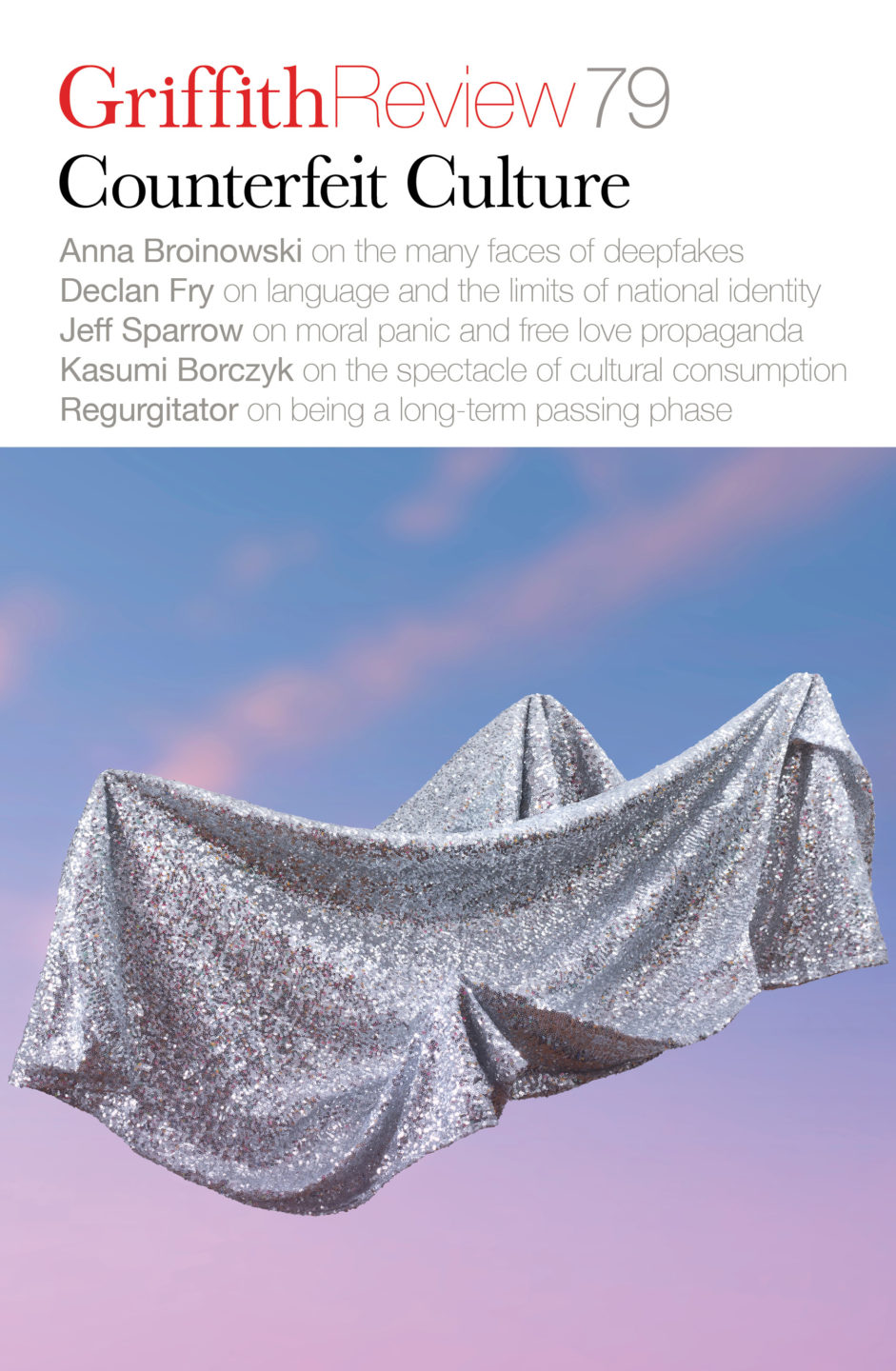Featured in

- Published 20230207
- ISBN: 978-1-922212-80-1
- Extent: 264pp
- Paperback (234 x 153mm), eBook


Already a subscriber? Sign in here
If you are an educator or student wishing to access content for study purposes please contact us at griffithreview@griffith.edu.au
Share article
About the author

Ben Ely
Ben Ely is an award-winning musician and artist. He's a founding member of, and bass player with, Regurgitator. His other musical projects includes work...
More from this edition

The Wrestling of Art
PoetryWe’re tired of the caged horizon, the canned emotion. But the spectacle of the crimson world is a real slobber-knocker of a struggle.

Wax
FictionI touch the wax of their pickaxes, then run my hand along the wax rock of the walls. One man squats a few metres away from the others, holding a pan. As I move towards him, I notice a label with descriptive text about Victoria’s gold rush, a reminder of the foundational gruesomeness of the enterprise – the colonial history of world’s fairs, or zoos, here insisting on itself in a minor carnival of the macabre.

Radical love
FictionPeople ask me how to manifest their greatest desires because I am clearly living the life of my dreams. I am renowned for my healing work and own a vast business empire connected to it, although this has not always been the case. Prior to my unlimited success, I dabbled in various careers but never settled on any, feeling there was more to existence if only I could grasp it.